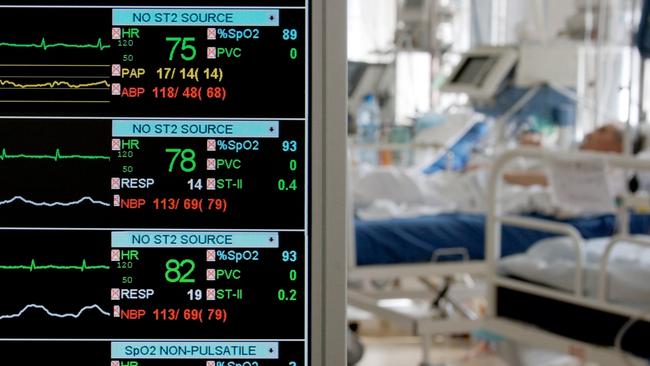Children’s Hospital at Westmead paediatric donor nurse supports families in difficult time
JODI Pasfield is the face families see at the most difficult time of their lives — when their child is on the cusp of losing their life.
Parramatta
Don't miss out on the headlines from Parramatta . Followed categories will be added to My News.
JODI Pasfield is the face families see at the most difficult time of their lives — when their child is on the cusp of losing their life.
The Children’s Hospital at Westmead donation specialist nurse said specialist donation staff worked 24 hours a day, seven days a week, 365 days a year to support families through donation.
One donation can save the lives of up to 10 people. There are normally 1400 Australians on the transplant waiting list at any one time with 2.5 per cent of those children.
“In my role I am seeing people at a difficult time in their lives,” she said.
Each year about a dozen families decide to donate their child’s organs and tissue in NSW. Westmead, Randwick and John Hunter are the three intensive care units (ICU) with this capability.
“My role is at an acutely distressing time but I am continually taken aback.”
She said families were in a catastrophic situation but were always thinking about another family.

“The main crux is a child has died. If a family can donate, it is an incredible thing to do.
It is a little bitter sweet though,” she said.
“All families who are in the ICU discuss end of life care for their child. That is where organ donations explored, if it is an option.”
A child cannot be an organ donor unless they have met a specific criteria. The child needs to have been in ICU on a ventilator so the organs get oxygen.
“We give the families all the information to decide whether it is important to them. Organ donation is not right for everybody,” Ms Pasfield said.
“If a family leaves it and looks back and says it was the right decision for them, I have done my job.”
When a family agrees for their child to be a donor, a specialist team flies in to do the transplant.
“When they go into the theatre, the child can take their favourite toy or a religious statute. We play their favourite music during the surgery too.”
When the family goes home following the donation, there is contact within 48 hours. “We ask if they’d like updates of how the donation went with the recipients. We haven’t had a family not want that information.” she said.
The phone call is followed up with a letter with information bereavement and the next steps moving forward.
“The family also has the opportunity, down the track, to write to the (donor) recipients … we are constantly thinking about the donor family.
“It is such a privilege to work with these families. They have an incredible story and don’t realise the enormity of the lives they’re changing.”
The NSW Organ and Tissue Service has a group of donation specialists like Ms Pasfield — there is one at Westmead Hospital and Nepean and is a 24-hour, seven-day a week service.
DONATION
● One donor can save the lives of up to 10 people
● 1400 people are on Australian transplant waiting lists at any one time
● A further 12,000 are on dialysis
● One to two per cent of people who die in hospital are eligible to donate their organs
● There were 135 deceased donors in 2017, the state’s highest ever
● 67 per cent of Aussies are willing to donate but only 33 per cent have joined the Australian Organ Donor Register
● In NSW, 39 per cent of people have registered
● Join the Australian Organ Donor Register: visit register.donatelife.gov.au/decide
WAITING
● A person is put on a transplant waiting list when they have end-stage organ failure and all other treatments have failed
● Organs that can be transplanted include heart, lungs, kidneys, liver, intestine and pancreas
● Waiting times vary but can be four years or even longer for some
● 2.5 per cent of those waiting for an organ transplant were aged up to 14


